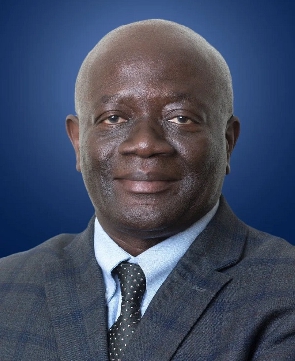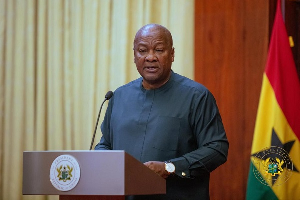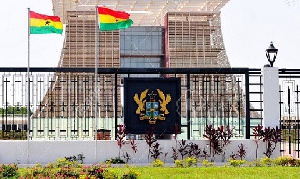The Receiver of defunct Unibank Limited, Nii Amanor Dodoo has observed that at the end of each month, when the bank could not meet its profit expectation, the Management of the bank initiated steps to create the fictitious loans.
He said the purpose of this was to generate interest income among others.
The Receiver was answering questions in a cross-examination by lawyers for Mr Jeffery Amon, a former Relationship Manager of Corporate Banking of Unibank.
The development comes after the accused persons in the matter have been charged with fraudulent breach of trust, money laundering, dishonest appropriation, willfully causing financial loss to the Republic and conspiracy to commit crime.
The Receiver told the Court that at the time the license of Unibank was revoked, it was discovered that an amount of GH¢5.7 billion had been dishonestly appropriated by the shareholders with the connivance and assistance of some of the accused persons.
The Receiver referred to the case of Ucomm Limited, where a fictitious account was created in its name and an amount of GH¢11million credited to that account.
"This amount was subsequently moved to the shareholders’ account," he said.
Nii Dodoo also recounted similar of situation of Fuzak Co Limited where an amount of GH¢28million was credited to a fictitious account created in the name of the company and the said amount subsequently moved to the shareholders’ account.
He stated that every transaction that was inputted into the banking software application of Unibank Limited (T24R15) including the date and time was made was captured.
He added that the identity of the person inputting the data, the department of the said person as well as the details of the person authorizing the transaction in the system were also captured.
Nii Amanor Dodoo further explained that the authorization as used referred to the confirmation of the accuracy of details of the transaction as captured in the banking software application.
The Receiver said though he was unaware of the identity of the official of Unibank, who created the shareholders’ account, he could confirm that the shareholders’ account was in existence between 2014 and 2018.
He reiterated in his earlier testimony that fictitious loans in excess of GH¢1 billion were created in the names of identified customers of the bank.
According to the Receiver, the funds credited were subsequently debited by Mrs Elsie Dansoa Kyere, a former Head of Corporate Banking and Mr Benjamin Ofori, a former Executive Head of Credit Risk of Unibank.
He admitted that though Mrs Dansoa Kyere and Ofori did not have access rights to T24R15, the accounts of these customers that were debited based on Memos initiated by them.
"The funds were subsequently used to reduce the outstanding balance on the shareholders’ account," he added.
The Receiver could, however, not indicate the names of the officers, who actually moved the funds from the customers’ accounts in T24R15 and used it to reduce the outstanding balance on the shareholders’ account.
He admitted that the Memos initiated by Mrs Dansoa Kyere, Amon and Ofori requesting that accounts of certain customers be credited with various amounts did not indicate that the funds after being credited should be reversed.
"All these accounts were all fictitious," the Receiver added.
He said the purpose of the Memos was to sought approval for the disbursement of facilities into the fictitious accounts.
At Unibank, such Memos should have been accompanied by letters from the customers requesting for the credit facilities, the evaluation of the requests of the customers and the recommendations by the relevant officials of the bank.
But the Memos initiated by Mrs Dansoa Kyere, Mr Amon and Mr Ofori did not have any of these supporting documents.
Meanwhile case has been adjourned to May 18, 2023 for continuation.
MA
Business News of Thursday, 18 May 2023
Source: www.ghanaweb.com

















